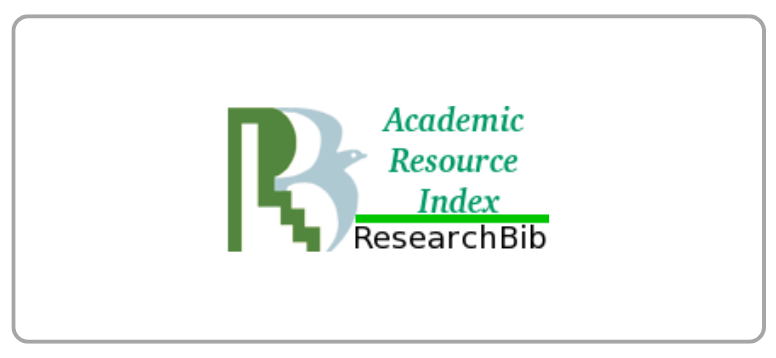Tinjauan Kritis Terhadap Teori Aktivitas dan Dilema Sosial
DOI:
https://doi.org/10.21512/humaniora.v2i1.3101Keywords:
activity theory, social dilemma, social psychologyAbstract
Nowadays, there are developing theories in social psychology. Two of them are activity and social dilemma theory. Unfortunately, Indonesia has less expertise in specific theoretical social psychology. The article is purposed to give analysis for the two theories including its history, its development today, and also its research critical and prospect in the future. This description could help academics and practitioners to build and develop best theories (as well as practice) in their own environment. Based on the critical analysis, it could be concluded that along with their advantages and limits, both activity and social dilemma theory are prospective in triggering researches especially in Indonesia, where there are not much research using those theories.
Â
Plum Analytics
References
Avis, J. (2007). Engeström’s version of activity theory: A conservative praxis? Journal of Education and Work, 20(3), 161-177.
Bakhurst, D. (1991). Consciousness and revolution in Soviet philosophy. New York: Cambridge.
Batson, C. D., Batson, J. G., Todd, R. M., Brummett, B. H., Shaw, L. L., & Aldeguer, M. R. (1995). Empathy and the collective good: caring for one of the others in a social dilemma. Journal of Personality And Social Psychology, 68(4), 619-631.
Beckenkamp, M. (2006). A Game Theoretic Taxonomy of Social Dilemmas, Central European Journal of Operations Research, (3), p1-17.
Bedny, G., & Karwowski, W. (2004). Teori aktivitas as a basis for the study of work. Ergonomics, 37(2), 134–153.
Capra, F. (2002) Hidden connections: Integrating the biological, cognitive, and social dimensions of life into a science of sustainability. New York: Doubleday.
Cole, M., & Engeström, Y. (1993). A cultural-historical approach to distributed cognition. Dalam G. Salomon (Ed.), Distributed cognitions. Cambridge, UK: Cambridge University Press.
Dawes, R. M., & Messick, D. M. (2000). Social dilemmas. International Journal of Psychology, 35(2), 111-116.
Engeström, Y. (1987). Learning by expanding: An activity-theoretical approach to developmental research. Helsinki, Finland: Orienta-Konsultit Oy.
Engeström, Y. (1999). Innovative learning in work teams: Analyzing cycles of knowledge creation in practice. Dalam Y. Engeström, R. Miettinen, & R.-L. Punamäki (Eds.), Perspectives on teori aktivitas (h. 377–404). Cambridge, UK: Cambridge University Press.
Engestrom, Y. (2001) Expansive learning at work: toward an activity theoretical reconceptualization, Journal of Education and Work, 14(1), 133–156.
Engestrom, Y., & Miettinen, R. (1999) Introduction. Dalam Y. Engestrom, R. Miettinen & R. Punamaki (Eds). Perspectives on activity theory. New York: Cambridge University Press.
Gifford, R. (2008). Toward a comprehensive model of social dilemma. Dalam A. Biel, D. Eek, & T. Gärling, New issues and paradigms in research on social dilemmas. New York: Springer Science and Business Media.
Håkansson, H., & Prenkert, F. (2004). Exploring the exchange concept in marketing. Dalam H. Håkansson, D. Harrison, & A. Waluszewski (Eds.), Rethinking marketing: Developing a new understanding of markets (h. 75–97). Chichester, UK: Wiley.
Hertel, G., & Fiedler, K. (1994). Affective and cognitive influences in social dilemma game, European Journal of Social Psychology (24) 1, p131-145.
Hinnfors, J. (2008). Puzzling lack of a social dilemma. Scandinavian Political Studies, 31(1), 69-90.
James, W. (1890). The principles of psychology. New York: Holt.
Leontiev, A. N. (1977). Activity and consciousness. Dalam Philosophy in the USSR: Problems of dialectical materialism (h. 180–202). Moscow: Progress Publishers.
Lewin, K. (1951). Field theory in social science: Selected theoretical papers. New York, NY: Harper & Row.
Montiel, C. J., & Noor, N. M. (Eds.). (2009). Peace psychology in Asia. New York: Springer Science and Business Media.
Ngan, C. S., & Au, W. T. (2008). Effect of information structure in a step-level public good dilemma under a real-time protocol. Dalam A. Biel, D. Eek, & T. Gärling, New issues and paradigms in research on social dilemmas. New York: Springer Science and Business Media.
Penyeragaman yang menyusup. (2010, Agustus 27). Kompas.com. Diakses pada 3 Januari 2011, dari http://cetak.kompas.com/read/2010/08/27/03333315/penyeragaman.yang.menyusup
Rockenbach, B., & Wolff, I. (2009). Institution design in social dilemmas: How to design if you must? Diakses pada 3 Januari 2011, dari http://mpra.ub.uni-muenchen.de/16922/1/MPRA_paper_16922.pdf
Sarwono, S. W. (2005). Psikologi kelompok dan psikologi terapan. Jakarta: Balai Pustaka.
Toulmin, S. (1999). Knowledge as shared procedures, in: Y. Engestrom, R. Miettinen & R. Punamaki (Eds.). Perspectives on activity theory. New York: Cambridge University Press.
Van Oers, B., Elbers, E., van der Veer, R., Wardekker, W. (Eds.). (2008). The transformation of learning: Perspectives from activity theory. Cambridge: Cambridge University Press.
Virkkunen, J., & Kuutti, K. (2000). Understanding organizational learning by focusing on “activity systems.†Accounting Management and Information Technologies, 10, 291–319.
Vygotsky, L. (1978). Mind in society: the development of higher psychological processes. Cambridge, MA: Harvard University Press/Cambridge University Press.
Weiten, W. (1989). Psychology: Themes and variations. Pacific Grove, CA: Brooks Cole.
Downloads
Published
How to Cite
Issue
Section
License
Authors who publish with this journal agree to the following terms:
a. Authors retain copyright and grant the journal right of first publication with the work simultaneously licensed under a Creative Commons Attribution License - Share Alike that allows others to share the work with an acknowledgment of the work's authorship and initial publication in this journal.
b. Authors are able to enter into separate, additional contractual arrangements for the non-exclusive distribution of the journal's published version of the work (e.g., post it to an institutional repository or publish it in a book), with an acknowledgment of its initial publication in this journal.
c. Authors are permitted and encouraged to post their work online (e.g., in institutional repositories or on their website) prior to and during the submission process, as it can lead to productive exchanges, as well as earlier and greater citation of published work.
USER RIGHTS
All articles published Open Access will be immediately and permanently free for everyone to read and download. We are continuously working with our author communities to select the best choice of license options, currently being defined for this journal as follows: Creative Commons Attribution-Share Alike (CC BY-SA)
























